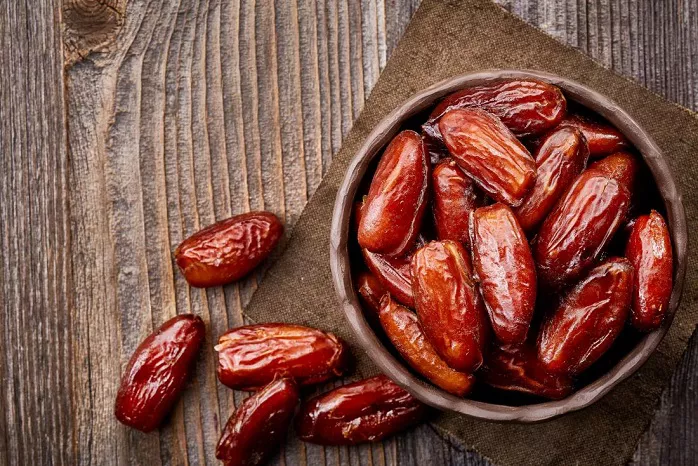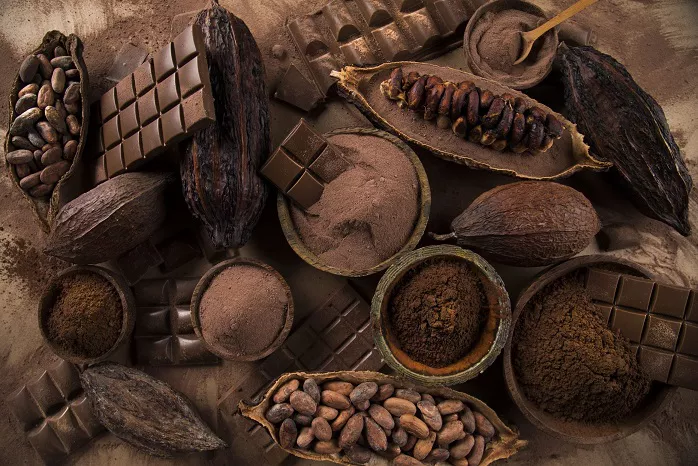Dates, the sweet and chewy fruit of the date palm tree, have been enjoyed for centuries and are a staple in many Middle Eastern and Mediterranean diets. But just how healthy are these little natural wonders? In this article, we will delve into the nutritional riches that dates offer, discuss their potential health benefits, and provide tips for incorporating them into a balanced diet.
1. Nutritional Profile of Dates:
Packed with Nutrients
Dates are a powerhouse of nutrition. They are rich in essential vitamins and minerals, including potassium, magnesium, vitamin B6, and iron. Additionally, dates are an excellent source of dietary fiber and natural sugars, making them a satisfying and energy-boosting snack.
2. Health Benefits of Dates:
Nutrient Density and Heart Health
Heart Health: The potassium in dates helps regulate blood pressure, reducing the risk of heart disease.
Digestive Health: The fiber content aids digestion and helps prevent constipation.
Nutrient Density: Dates are packed with nutrients, making them a nutrient-dense addition to your diet.
Energy Boost: The natural sugars provide a quick and sustained energy source, making dates an ideal pre-workout snack.
3. Potential Concerns:
Natural Sugar Content
While the natural sugars in dates are healthier than refined sugars, it’s important to consume them in moderation, especially if you’re managing your blood sugar levels. Dates are calorie-dense, so portion control is essential to prevent excessive calorie intake.
4. Practical Tips for Healthy Date Consumption:
To maximize the health benefits of dates:
Moderation: Enjoy dates in moderation to avoid excessive sugar intake.
Balanced Diet: Incorporate dates into a balanced diet with a variety of foods.
Hydration: Dates are naturally rich in fiber, so drink plenty of water to help with digestion.
5. Versatile Uses of Dates:
Dates are incredibly versatile and can be used in various culinary applications:
Snacking: Enjoy them on their own or stuffed with nuts for a wholesome snack.
Baking: Use date paste or chopped dates as a natural sweetener in recipes.
Smoothies: Add dates for natural sweetness and added nutrients.
Salads: Sprinkle chopped dates on salads for a sweet and savory contrast.
Energy Bars: Make your own energy bars with dates, nuts, and seeds.
Conclusion:
In conclusion, dates are a nutritional treasure trove that can be a healthy and delicious addition to your diet when consumed in moderation. They offer an array of essential vitamins, minerals, and fiber, with potential benefits for heart health, digestion, and energy levels. However, mindful consumption is key, especially if you’re concerned about sugar intake.
FAQs related to the topic “How Healthy Are Dates” :
Q1: Can dates be part of a vegan or vegetarian diet?
A1: Yes, dates can be part of both vegan and vegetarian diets. They provide essential nutrients and can be used as a natural sweetener in various plant-based recipes.
Q2: Are dates a good choice for people with diabetes?
A2: Dates are a natural sweetener, but they are relatively high in natural sugars. People with diabetes should consume dates in moderation and monitor their blood sugar levels. It’s advisable to consult with a healthcare professional or a registered dietitian for personalized guidance.
Q3: Can dates help with digestion?
A3: Yes, dates can aid digestion due to their high dietary fiber content. Fiber helps prevent constipation and promotes regular bowel movements, supporting overall digestive health.
Q4: Are there any potential side effects of consuming too many dates?
A4: Excessive consumption of dates can lead to an excessive calorie intake, potentially contributing to weight gain. Additionally, the natural sugars in dates may affect blood sugar levels if consumed in large quantities. It’s essential to practice moderation.
Q5: How can dates be used as a natural sweetener in recipes?
A5: Dates can be blended into a paste by soaking them in hot water and then pureeing them. This date paste can be used to sweeten recipes like smoothies, baked goods, and energy bars.
Q6: Can dates be included in a weight loss diet?
A6: While dates are a nutritious snack, they are calorie-dense due to their natural sugars. If you’re on a weight loss diet, it’s crucial to consume them in moderation as part of a balanced meal plan.
Q7: Are there any benefits to using date paste as a sugar substitute in recipes?
A7: Date paste can be a healthier alternative to refined sugar in recipes because it provides natural sweetness along with added nutrients and fiber. It can help reduce the overall sugar content in dishes.
Q8: Are there any specific health conditions for which dates are particularly beneficial?
A8: Dates can benefit individuals with hypertension due to their potassium content, which helps regulate blood pressure. They can also be a good energy source for athletes or those needing a quick energy boost.
Q9: Are there different varieties of dates, and do they have varying nutritional profiles?
A9: Yes, there are many varieties of dates, and their nutritional profiles can vary slightly. However, in general, dates are a good source of essential nutrients regardless of the variety.

























